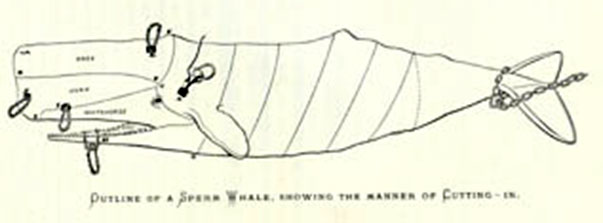Sources
Melville was a voracious reader and inveterate researcher. He used sources to augment his own personal experiences or to stimulate inventions for his imaginative works. Melville’s appropriation of source books also shows how he revises those texts, and in revising—through quotation, paraphrase, or outright plagiarism—he creates his own version of another writer’s text. His revisions essentially convert a source text into a fluid text. For instance, in Moby-Dick we find passages on colonizing the Pacific taken directly from Thomas Beale’s Natural History of the Sperm Whale, but Melville has massaged Beale’s text to question his colonial perspective. Melville’s revision of Beale is in fact Melville’s version of Beale, tucked within the text of Moby-Dick. But we cannot know the interpretive value of Melville’s revisions of his sources until we can collate the corresponding texts, display them side-by-side, and highlight the differences. For further discussion on collation, see Collating Moby-Dick. Our proposed text and image annotation workspace Melville ReMix will also enable close comparison and study. All that is required is access to Melville’s source books.
Fortunately, much of the work of finding, cataloguing, and displaying Melville’s source books has been, and continues to be done, in Melville’s Marginalia Online (MMO). Edited by Steven Olsen-Smith, Peter Norberg, and Dennis C. Marnon, MMO lists the works known to have existed in Melville’s dispersed library, curates images of the 300 or so books retrieved from the dispersal, and displays transcriptions of Melville’s marginal markings and inscriptions in them.
MEL and MMO have been affiliated informally and are working toward developing a means for fuller interoperability of our two sites as well as MPCO: Melville’s Print Collection Online.

 Melville's Marginalia Online
Melville's Marginalia Online